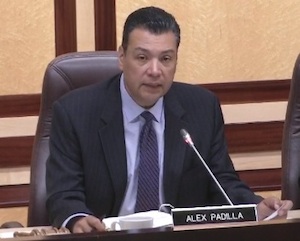
Work undone.
A couple of tweaks were made, but the substance of assembly bill 2272 remains the same following discussion and approval by the California senate energy, utilities and communications committee yesterday. AB 2272 would impose union pay and work rules requirements on all broadband infrastructure projects funded by the California Advanced Services Fund (CASF), nearly doubling the cost for both taxpayers and ISPs.
The committee rejected a proposal to limit the new rules to future projects, opting instead to make the requirement retroactive. That will come as an unwelcome surprise to some, according to a summary prepared for the committee…
Applying the requirement to projects in the pipeline will severely jeopardize the viability of these projects as they struggle to come up with what they anticipate is additional funding needed to comply and for projects where the need for broadband is critical and the rural communities are expensive to serve due to the remote location.
CASF pays 60% to 70% of the construction cost for broadband infrastructure in under and unserved areas. The balance comes from applicants – some are union shops but many, particularly in rural areas, are not. Increasing the cost of their share of the project by 80% – which prevailing wage would typically do – could scuttle it altogether.
The committee did clarify that the new law would only apply to infrastructure projects, and not regional consortia or public housing adoption programs, which CASF also funds, and otherwise cleaned up the language a bit.
The vote, as initially recorded, was 8 to 1 in favor, with one republican – Anthony Cannella, whose district stretches from Salinas to Merced – joining the democrats on the committee, including chairman Alex Padilla (D – Los Angeles), in voting aye. The no vote came from Jean Fuller (R – Bakersfield).
Padilla’s committee was the best hope for toning down, if not stopping, the bill. He was the author last year of a measure that extended CASF funding and eligibility. AB 2272 would undo much of that work. But this is an election year and the unions backing it are a major source of campaign support, including cash. So too are incumbent telephone and cable companies, who tried to kill the CASF extension last year and continue to hammer at it now.
The bill now goes to the senate labor and industrial relations committee, which is scheduled to take it up next week.
AB 2272 as originally introduced
Staff analysis – the committee rejected item 3, approved 4 and 5
